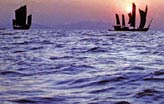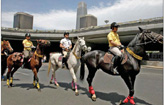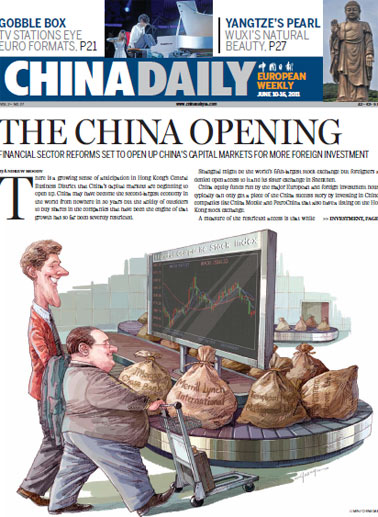People
Brewing up success story
Updated: 2011-06-10 10:40
By Matt Hodges (China Daily European Weekly)

By mid-July 2007, when Starbucks had about 250 stores in China, this controversial outlet shut up shop, apparently by mutual agreement.
Now Starbucks is attaching great importance to China, according to Schultz, the inspirational figurehead who revived the brand's flagging fortunes after returning to the helm. He even titled the final chapter of his book Ni Hao, "hello" in Chinese.
"It is the only country I devoted a chapter to, so that should tell you something," Schultz says, who aims to more than triple the number of Starbucks stores in China from 400 to 1,500 by 2015.
The chain also aims to more tightly control how its China stores are managed. It announced earlier this month that it plans to acquire full ownership of all its stores in China from joint venture partner, Maxim's Caterers Ltd.
The agreement will allow Starbucks to boost profitability in China through direct control of more than half of Starbucks stores in Chongqing municipality and five other provinces, including Hainan and Sichuan, the company said in a statement.
"China will be the second-biggest market outside North America," Schultz says. "Most of the new stores will be in second- and third-tier cities, where our research shows that awareness of Starbucks is as good as in the big cities we are already in."
Part of Schultz's radical transformation of the brand - which is now banking on the success of its VIA instant coffee product - involved dropping the word "coffee" from the logo. This paved the way for the company to expand outside its traditional outlets and focus more on its consumer packaged goods in supermarkets and grocery stores.
"We're looking to build a portfolio of $1 billion brands," says Schultz, who is also giving Seattle's Best Coffee, one of Starbucks' subsidiaries, a revamp. "We're going to be developing lots of food and beverage products that don't have any coffee in them and we're going to be bringing those products to China.
"I think you will see more food that is consistent with Chinese tastes, both sweet and savory. But we want to see innovation around that," Schultz says.
VIA was launched in China in April and is already exceeding expectations, says Schultz, who expects VIA to become a billion-dollar-a-year business. Starbucks will soon start offering more products that use the VIA technology, he says.
"We're going to start doing business here in a way we've never done business before," he says, giving the example of plans to grow coffee beans in Southwest China's Yunnan province.
In the ghost-written book, Schultz outlines how innovation and his love affair with the personalized nature of Italian coffee culture lie at the heart of Starbucks' rebirth. He explains in five emotionally charged "parts" how he achieved this turnaround. The parts are named, respectively, Love, Confidence, Pain, Hope and Courage.
"I also wanted a written record of the lessons learned, and for young entrepreneurs facing troubles in these difficult times," he says.
The book is easy to read and no doubt of use to budding entrepreneurs. It is also peppered with sports analogies from the boy who escaped from the Bronx courtesy of a football scholarship. Readers who are pressed for time can skip to the epilogue, or Tribute, which sums up the author's roadmap to success during his second term as CEO.
Schultz cites the following ingredients: being the undisputed coffee authority; igniting the emotional attachment with customers, which he achieved by establishing a loyalty program and venturing into social media; expanding Starbucks' global presence; being a leader in ethical coffee sourcing and sustainability; and delivering a sustainable economic model, which involved a supply chain overhaul, among other measures.
However these points fail to capture the essence of Schultz's leadership skill. One of the keys to Starbucks' success is the way it has preserved its place at the center of communities, providing a "third base" for customers outside the home and office. But its success also boils down to Schultz's knowing when and how to send out strong messages of intent at crucial bends in the river.
E-paper

Pearl on the Yangtze
Wuxi is considered a town of natural beauty and its motto is "city of water and warmth".
Prose and consternation
Riding on a mystery train
Way of a warrior
Specials

Wealth of difference
Rich coastal areas offer contrasting ways of dealing with country's development

Seal of approval
The dying tradition of seal engraving has now become a UNIVERSITY major

Making perfect horse sense
Riding horses to work may be the clean, green answer to frustrated car owners in traffic-trapped cities
